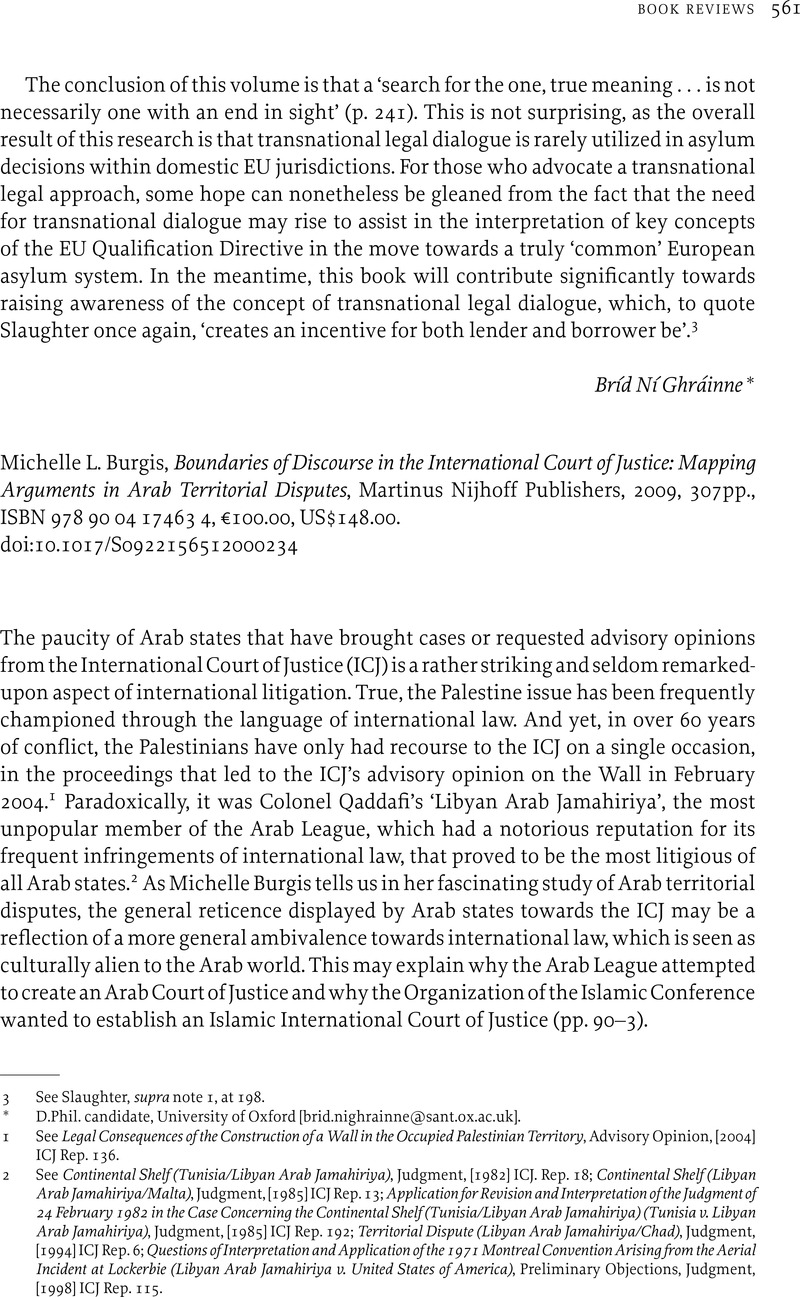No CrossRef data available.
Article contents
Michelle L. Burgis, Boundaries of Discourse in the International Court of Justice: Mapping Arguments in Arab Territorial Disputes, Martinus Nijhoff Publishers, 2009, 307pp., ISBN 978 90 04 17463 4, €100.00, US$148.00.
Published online by Cambridge University Press: 02 May 2012
Abstract

- Type
- BOOK REVIEWS
- Information
- Copyright
- Copyright © Foundation of the Leiden Journal of International Law 2012
References
1 See Legal Consequences of the Construction of a Wall in the Occupied Palestinian Territory, Advisory Opinion, [2004] ICJ Rep. 136.
2 See Continental Shelf (Tunisia/Libyan Arab Jamahiriya), Judgment, [1982] ICJ. Rep. 18; Continental Shelf (Libyan Arab Jamahiriya/Malta), Judgment, [1985] ICJ Rep. 13; Application for Revision and Interpretation of the Judgment of 24 February 1982 in the Case Concerning the Continental Shelf (Tunisia/Libyan Arab Jamahiriya) (Tunisia v. Libyan Arab Jamahiriya), Judgment, [1985] ICJ Rep. 192; Territorial Dispute (Libyan Arab Jamahiriya/Chad), Judgment, [1994] ICJ Rep. 6; Questions of Interpretation and Application of the 1971 Montreal Convention Arising from the Aerial Incident at Lockerbie (Libyan Arab Jamahiriya v. United States of America), Preliminary Objections, Judgment, [1998] ICJ Rep. 115.
3 Burgis only utilizes non-legal sources in Chapter Two, when she explains Arab–Islamic approaches to authority over territory at pp. 55–94. In this chapter, there is an excellent account of Ottoman history and its relations with Europeans in the nineteenth century at pp. 70–84.
4 Qatar v. Bahrain (Merits), [2001] ICJ Rep. 367, para. 310 (Judge Torres Bernárdez, Dissenting Opinion).


